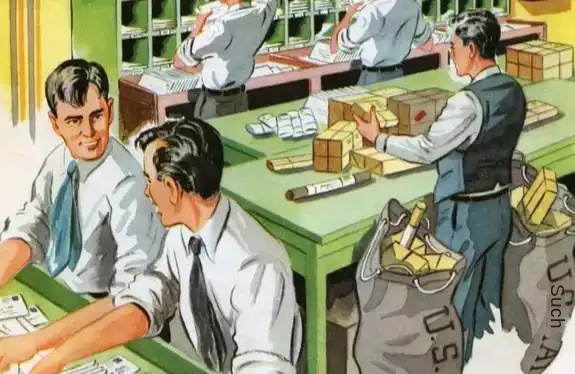Buidler DAO: a16z Partner on the details and implications of Steam suspending Web3 games
原文标题:《 Buidler DAO 翻译:Steam 暂停 Web3 游戏 》
原文来源: Buidler DAO
Valve Software, the company that runs Steam, the world's largest gaming platform, recently announced that it has added a rule for games that use blockchain technology or allow users to exchange cryptocurrencies or NFT. The rule is visible in the "Things You Shouldn't Publish on Steam" primer for developers. We're looking beyond the player to see what's trending here. These limitations affect not only game developers and players on the platform, but also the industry's business models and game innovation in the Web3 space. Our guests are Jonathan Lai and Eddy Lazzarin, partners of a16Z.
Dialogue
Host: John is going to talk about the importance of Steam, Eddy is going to talk about the significance of the Web3 movement, and then we're going to get into the details and the impact.
Jonathan Lai: Steam is a digital distribution platform that has a desktop client that users download to their computer and then play games with. At the same time, you can also click into the store, where games from around the world are available. It has over 120 million monthly active users on Steam, with popular games like Counter-Strike, Team Fortress, Dota2, and more. Steam is very friendly to game developers because they no longer have to go to publishers to publish their games. All it takes is creating a developer account on Steam, uploading an executable file, and clicking a few buttons, and this game can be sold to people all over the world. Think of Steam as an app store or a PC game store.
Host: Steam is the leader in gaming. Why is it in the news now? What does that mean?
Jonathan Lai: It's a big sign for the market. Steam has a very good reputation in the game developer community. It was the first open source company that was most friendly to game developers. A lot of software is built around Steam, and if your game is a popular game with a high volume of traffic, the most significant impact of this news is that Steam will not be able to link games. This has caused a lot of Web3 game developers to worry about whether they can still publish their games on Steam.
Host: So how does Steam's decision affect Web3 games?
Eddy Lazzarin: From a gamer's perspective, my view of Steam is that it allows us to get rid of an important middleman, which is the game store. In the past, games were purchased as consumer goods in the form of actual game discs or game cartridges. Steam has replaced that model by allowing game publishers to distribute their games directly to people's gaming devices. In the middle to reduce a lot of waste of resources. Now Steam acts as an intermediary between game publishers and players, controlling the game economy and even the kinds of technologies you can use. It forces game developers and publishers to rethink the distribution channels they use, just like any other type of media.
Host: We hear a lot about NFT, blockchain games, and Web3 games in the context of games. What's that all about? What is a Web3 game, and how is it different from the traditional games we are used to?
Eddy Lazzarin: We're in the early days of Web3 games, but it has financial and composable properties, and we're probably going to see more of that. At its most basic, it's like using a medium like blockchain or cryptocurrency to pay for games or in-game items. But what's interesting about Web3 is that it allows you to actually own these in-game items and really get into them. At some point, even game developers can't confiscate assets. This gives players the opportunity to trade these items in a way that is legal and very difficult to circumvent or disrupt the secondary market. And because of blockchain technology, these game assets or money can be completely removed from Steam. My concern is that Steam's one-size-fits-all approach will throw away all the good and bad parts of Web3. Because they limit the combinational capabilities offered by Web3 non-financialized applications, blockchain and Web3 allow developers to reassemble different elements of a game, such as objects, land, skins, all different types of entities in these games that others can build on or extend, a process that is a bit like modernization. Web3 provides some very interesting approaches, and really high quality user improvements to this modeling extend the remix recombination process. By restricting any games built using blockchain technology, Steam also limits this re-integration. This is an extension of the modern culture that will emerge from Web3.
Host: Hype aside, what practical impact will Steam's decision have on Web3 developers and their users?
Jonathan Lai: There are definitely some project owners and NFT holders who are going to be confused about how to play chain games, and they're going to have to move their games and find ways to build communities elsewhere, which I think is always challenging. But it's not an insurmountable challenge, in fact most Web3 games do an excellent job of building community, and if you look at most of the mainstream projects these days, they're serving thousands of people who are talking about their games through Discord, in the sense that they should be able to make money by publishing directly to players.
Host: Given all that, you'd think Steam would want to find a way to co-exist, but they seem to see all these bases, so what's their reason for this restriction?
Jonathan Lai: I think there are two potential arguments to explain Steam's move. There are two opinions, one is friendly and the other is mean. The friendly view is that this is an attempt by Steam to avoid financial reporting and legal requirements regarding crypto transactions. Another view is that Steam wants to fundamentally maintain control of the market. This includes everything, the content of the game, the type of game, and the pricing. It slammed Steam for taking kickbacks from games published on the platform. The economic activity associated with Web3 games and trading NFT is difficult to control, although Steam is well aware that this is happening on the platform.
Host: What do you think is the most important?
Eddy Lazzarin: For me, the most important thing is that Web2 companies, including game companies, have to rethink how Web3 will affect their fundamental business model, which includes tax distribution, which is the primary source of revenue for this type of application platform.
Jonathan Lai: Web3 fundamentally upends app stores like Steam because it endangers the publishing power of publishers. Steam blocks and monitors components on their platform, which I think is a defensive move on their part. The point for me is that if you're a blockchain-based game or NFT developer, you're unfortunately missing out on the largest digital distribution platform or PC game distribution platform today. I'd like to see the new Web3 native publishing platform, where buyers who have been shunted by Steam, Apple, Google, etc., can all use one platform.
Welcome to join the official BlockBeats community:
Telegram Subscription Group: https://t.me/theblockbeats
Telegram Discussion Group: https://t.me/BlockBeats_App
Official Twitter Account: https://twitter.com/BlockBeatsAsia


 Forum
Forum Finance
Finance
 Specials
Specials
 On-chain Eco
On-chain Eco
 Entry
Entry
 Podcasts
Podcasts
 Activities
Activities
 OPRR
OPRR








